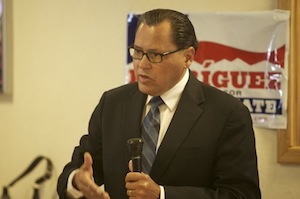El Paso has become the second city in Texas where an employer has been arrested and indicted on charges of wage theft. The Texas Observer reports that El Paso is the only city in the state that has an active wage theft task force. It includes the police and sheriff's departments as well as the County Attorney and District Attorney's offices.From the Observer:“It’s huge because we’re finally treating the stealing of someone’s wages the same way we treat someone stealing from Target or Albertsons or [any] store,” says Jed Untereker, an attorney with Paso del Norte Civil Rights Project who represented the employee.


A fight between some construction companies and Texas bankers may have to wait until the next legislative session to be resolved. That was the tone of a hearing this week in the Texas Senate where bankers made the case that even though it sounds like a simple concept, it is a tough issue when you “get into the weeds” of it.Construction trade groups, chiefly the Texas Construction Association, support a bill by Senator Bob Deuell, R-Greenville, which would require lenders to give notice when funding is being pulled from a project. Deuell said that he felt all the stakeholders had negotiated in good faith to try to craft legislation that solves the problem. Testimony was offered Tuesday morning to the effect that when a lender decides there will be no more disbursement of funds on a project, they are not required to notify any of the companies doing the work. Sometimes weeks or months go by before the construction companies on a project realize they are not going to be paid for that work.Rich Thomas, a construction lawyer in Dallas, testified before the Senate Business and Commerce Committee stating, "The problem is in the rare situation whenever there's a default.” He said in the event a lender makes the decision to stop funding a project, construction companies get the short end of the stick. "When the lender does not tell the general contractor, that's wrong," he said.
May 01, 2013


The bill still has a long way to go, but the proposed crackdown on the intentional misclassification of construction workers in Texas passed a milestone last week when it was voted unanimously out of a House Committee.On a 7-0 vote, HB 1925 was sent to the full Texas House. Before it can get to the House floor for a vote, however, it has to be put on the House calendar by the Calendars Committee. This is a step in the process where many bills can die. With time running short in the legislative session, the Calendars Committee has the power to keep legislation, good or bad, from getting to the point where the representatives of the people get to decide the issue. I'm told that Calendars Committee Chairman Todd Hunter may be coming under pressure from opponents of the crackdown, including the largest homebuilders:
April 30, 2013


Major Texas homebuilders came out against the state's moves toward cracking down on worker misclassification during a legislative hearing on Wednesday. The Leading Builders of America, which represents Perry Homes, David Weekley Homes, and others, argued that putting new regulations in place for the industry would lead to higher home prices and stifle job creation.Steve Henry, speaking for the Leading Builders of America, the trade group that represents Perry and Weekley, said the crackdown on payroll fraud would not only lead to increased home prices, but it would also increase litigation, deter the creation of small businesses and stifle job creation. Andrew Turner, representing the same trade group, said it is a "confusion of an already confusing area of the law." He said the Workforce Commission already has the ability to deal with misclassification. “It’s not fair to single out this industry,” he said. He said that if the legislation were passed, more people would have to be paid as employees instead of independent subcontractors.
April 17, 2013
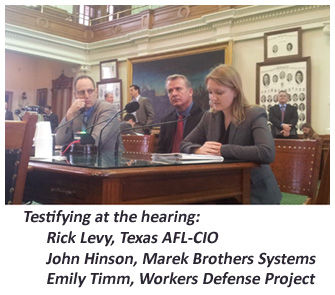

Construction industry leaders, associations, labor unions and others testified before lawmakers in Austin on Wednesday that the state needs to aggressively go after companies that misclassify their employees to avoid paying payroll taxes.The bill was laid out and the latest version does the following:Leaves the current common law test definition in place for independent contractor.Imposes a penalty of $100 for those in construction that misclassify their worker for the first time.Imposes up to a $1,000 penalty per employee, for each subsequent violation (this amount will be determined by the Texas Workforce Commission on a case-by-case basis).Allows an employer to appeal a violation and get the violation removed or get the penalty reduced based on certain criteria.
April 04, 2013
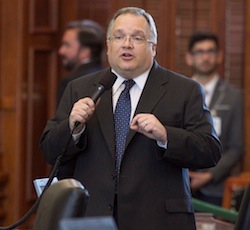

Following at least a month of weekly stakeholders meetings, Senator John Carona is set to lay out his vision for dealing with worker misclassification in a Texas Senate committee next Tuesday.The Dallas Republican's Senate Bill 676 is the result of balancing the need to fix the problem against the concerns of some players within the construction industry who don't want to the bill to go too far. The sticking points have included whether the state should create its own definition for subcontractor – rather than just stick with the IRS definition – and whether the specific amount for penalties should be written into the statute or set by the Workforce Commission on a case-by-case basis. The Texas Association of Business would prefer the latter option.In the Texas House on Wednesday, Representative John Davis presented to the Economic & Small Business Development Committee his bill on this issue.
March 29, 2013


A fight is brewing in Austin between bankers and the construction industry. The Texas Construction Association and the Associated General Contractors Texas Building Branch are pushing lawmakers at the state capitol to require that lenders notify construction firms when a decision is made to discontinue funding for a project.Some projects get their funding pulled in the middle of building, and in some cases, the construction firms are essentially hung out to dry. In the event a bank decides it will stop the flow of money to a project, that same bank can also later foreclose on the project. "When they foreclose on the project, they wipe out any of our liens," TCA President and CEO Raymond Risk said. "They've gotten all this work done by us."Two bills have been filed to address the issue:SB 295 by Senator Bob Deuell, R-GreenvilleHB 2180 by State Representative Cecil Bell, R-MagnoliaRisk said some TCA members have been hurt significantly when this happened.
March 26, 2013


Construction companies that get any government contracts in Texas may soon face penalties if they don't do a certain amount of safety training. Senator Bob Deuell, a Republican physician from Greenville, said his bill, SB 167, makes business sense as well as offers protections for workers."Other states and other places where they do that kind of training - they just cut down on their injuries. I don't think it's too cumbersome on businesses. An ounce of prevention is worth a pound of cure," he said. "The business community, I think, supports it. It costs them a lot more to deal with injuries than it costs to pay for training. There will be some people who don't like it but the data is there. If I were running a business I would just be doing it anyway."20 years ago, Senator Deuell helped shape a worker safety training plan for the Rubbermaid plant in Greenville, Texas. He said it was good for the workers and the company's bottom line. "Their workers' compensation claims just went down really, really low," he said.
March 18, 2013
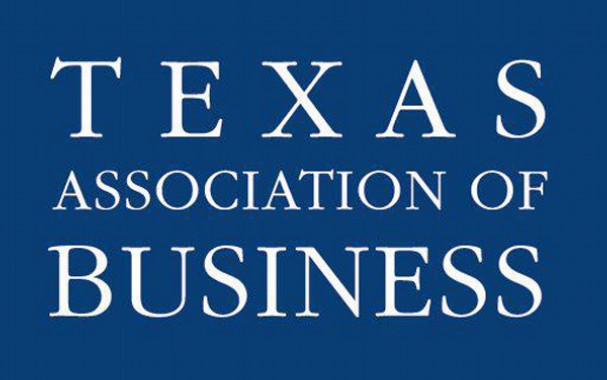

There's still plenty of work to do, but supporters of a crackdown on payroll fraud in Texas got a big boost yesterday when the Texas Association of Business (TAB) said it would not oppose the effort. Cathy DeWitt with TAB said in a House hearing that the powerful business group agrees with the concept, but they have some problems with the bill filed by Representative Joe Deshotel, D-Beaumont.Among other things, DeWitt said the amount of fines for payroll fraud shouldn't be written into a new law, but instead the Texas Workforce Commission (TWC) should use its rulemaking process and take complaints on a case-by-case basis. I spoke with Representative Deshotel after the hearing and he said he has a lot of work to do when it comes to coordinating with the TWC on this issue. "I will keep visiting with them. We have to deal with what we have. I've been working with TAB and you know the other people who testified, and I think it's an enforcement issue
March 13, 2013
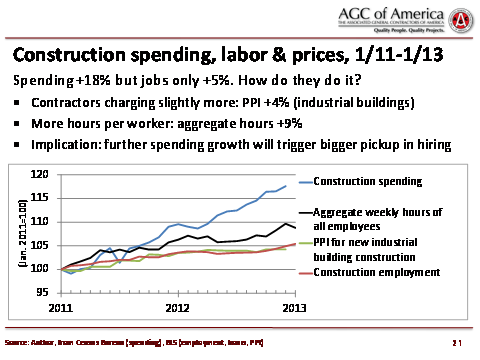

An industry insider who has been closely following our coverage of the payroll fraud issue raised a fascinating point recently. This executive I was chatting with put forward a theory: If construction volume is picking up, you'd think employment would go up as well. But, if so much of the workforce is misclassfied, then those workers would be in "payables," not "payroll." Or put more simply: One big reason the construction employment rate does not keep up with the volume of construction is precisely because of employee misclassification. Hmm...I picked up the phone and called Ken Simonson, the Chief Economist at AGC America and new Construction Citizen blogger. Here's what he told me:
March 07, 2013

